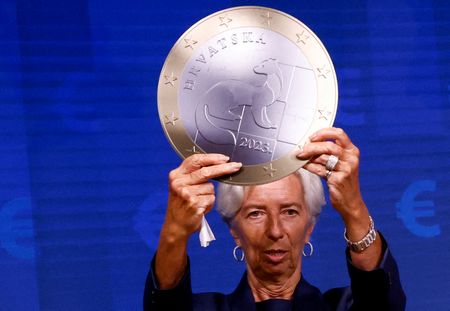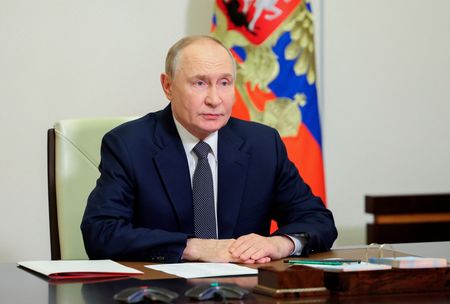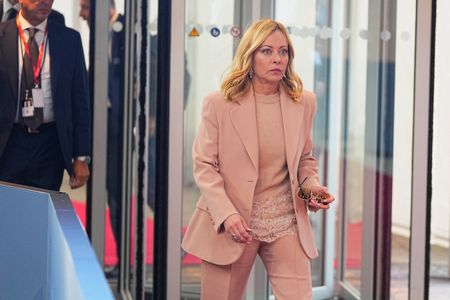FRANKFURT (Reuters) -European Central Bank President Christine Lagarde renewed her call on Tuesday for a beefed-up global role for the euro currency, arguing that the bloc is now an innocent bystander, suffering shocks created in Washington and elsewhere.
The euro, the world’s second most-used currency behind the dollar, has appreciated sharply this year as investors fled the U.S. currency on policy uncertainty, picking up safe assets, like gold and top-tier European bonds, among others.
But the 20-nation currency bloc’s market for investment grade sovereign debt and stocks is relatively small compared to the U.S., putting it at risk of volatility in case of such flows.
“We are innocent bystanders of policy decisions made in Washington and of portfolio allocation decisions made worldwide, which we don’t have much influence over,” Lagarde said in Paris. “It is not a sustainable position.”
“We cannot remain a passive safe haven, absorbing the shocks created elsewhere,” Lagarde said in a speech. “We need to be a currency that shapes its own destiny.”
Critics argue that a larger market share would mean appreciation for the currency, an unwelcome trend putting exporters at a disadvantage.
The argument is that foreign demand for reserve assets would mean a steady inflow into the bloc and that would strengthen the currency and not just lower borrowing costs.
But Lagarde argued that there is no such mechanical relationship and the bloc could mitigate such risks by shifting more of its foreign trade to euros and expanding domestic trade.
In any case, many of Europe’s economic difficulties were self-inflicted that could be resolved by bolder policy initiatives, she argued.
“Our weaker performance compared with the United States largely reflects internal barriers of our own making: including fragmented regulations, tax regimes, bankruptcy rules and incomplete capital markets,” she said.
“Structural challenges such as high energy costs, low productivity and reluctance to finance common projects are also, to a large extent, within our own control.”
(Reporting by Balazs Koranyi; Editing by Sharon Singleton)











